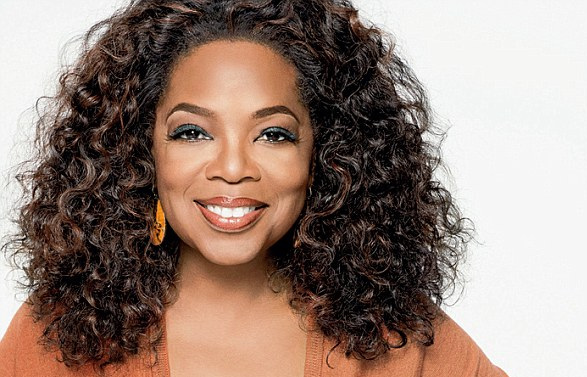Everyone wants to save the world, or so it seems these days. From young adult mentoring camps to well known “sponsor a child†programmes, people are becoming increasingly aware of the world’s problems and wanting to do something about them.
In today’s world, global issues are firmly in the spotlight with many CEOs, actors and moguls taking the centre stage in their attempts to make the world ‘a better place.’ However, the burning question that seems to keep coming up is: how sustainable are these attempts and do they actually impact the lives of those in need?
While it can be argued that many individuals go to great lengths to ensure their love for humanity is felt by the less fortunate, one person whose philanthropic efforts have left a lasting impression on my mind is Oprah Winfrey.Â
I personally admire Oprah’s efforts to change society for the better and help people in need. Who can forget her rehousing of hundreds of Hurricane Katrina’s victims in 2005?  Or, her girls’ school in South Africa targeted at girls from underprivileged backgrounds whom she personally screens and selects based on their individual circumstances? In both cases, the beneficiaries of her charitable efforts were not just faceless names on a long list of paper; they were actual people, families and children. She knew who these people were and ensured that they got what they needed; using her own money where necessary.Â
What made her selfless actions all the more impactful was the fact that she kept the world informed through her TV show, magazine and website. Through these platforms, we were able to monitor progress of the various projects and provide support.Â
Oprah did not do all of this alone; she partnered with organisations such as Walmart, Habitat for Humanity and Target. But, for the most part, she partnered with ordinary people like you and me to make people’s dreams come true.
Now, this article is not about Oprah and all her humanitarian achievements, but rather how we can ensure that our actions as 21st century businesses are benevolent, sustainable and, more importantly, offer a helping hand to those in need.Â
Gone are the days when businesses gave back to society for the mere “feel good†factor. Many organisations are realising that supporting projects in areas such as sanitation, youth literacy, women’s empowerment, health initiatives, and countless others, promotes a healthy workforce and builds a future pipeline of potential employees.  Getting involved in such activities also creates equal opportunity for all and ensures a sustainable and clean environment. In addition, it provides employees with a sense of purpose and makes them feel part of a solution.Â
A key question we should be asking ourselves is whether we are using the resources (financial and human) at our disposal to make a lasting change. Â Oprah may have her own way of giving back; however, we can all learn valuable lessons from her such as:
Lesson 1
Keep your stakeholders informed
 Employees, associates and clients often have a keen interest in the social position of the organisations they are affiliated with. A recent PwC study on millennials shows that this factor has a major influence on a person’s decision- making when choosing an employer and also has a strong effect on employee retention.  There are many ways such as newsletters and social media updates, through which employees and stakeholders can be informed about an organisation’s social standing.Â
Lesson 2
Measure your contributionÂ
What was the impact of your Corporate Responsibility activities? How much money was raised? Â How was it spent? Who were the beneficiaries of your projects? How often were activities followed up on?Â
What is not measured is not managed, and clear impact assessments are one of the best ways to ensure sustainability and continuity in development.
Lesson 3
Be creative and innovative
How can you encourage people to participate in Corporate Responsibility activities? Smart public relations activities, such as social media campaigns, go a long way in today’s technologically savvy world. Invest in good photography and use documentaries and short video stories to encourage further curiosity and engagement.
Lesson 4
Strategic partnerships
There is strength in numbers! The impact of powerful companies and different groups of people coming together to support society will go a lot further than one person’s, or organisation’s efforts.
If we all had pockets as deep as Oprah Winfrey, could we donate our funds to make the world a better place? Â Not quite! It takes dedication and a continuous commitment to behave ethically while investing in economic development to even begin to start making a change.
So ask yourself, are you ready to give back the “Oprah†way?
You can contact me by sending an email to ayesha.a. bedwei@gh.pwc.com and copy in Andrea Opoku- Dwamenah atÂ
(andrea.opuku-dwamenah@gh.pwc.com ) to obtain a quick response.Â
 About PwC
PwC firms help organisations and individuals create the value they're looking for. We're a network of firms in 157 countries with more than 208,000 people who are committed to delivering quality in assurance, tax and advisory services. Tell us what matters to you and find out more by visiting us at www.pwc.com/gh Â
Â
Business School – Upcoming session:Topic(s): Managing Tax Audits and Investigations and Your Role as an Unpaid Tax Collector
Venue: Golden Tulip, Kumasi. Date: 23 August 2016
Enquiry and registration: Please contact Salome Aku Duse on 0302 761500 (ext 301) or via email to pwcgh.businessschool@gh.pwc.com





